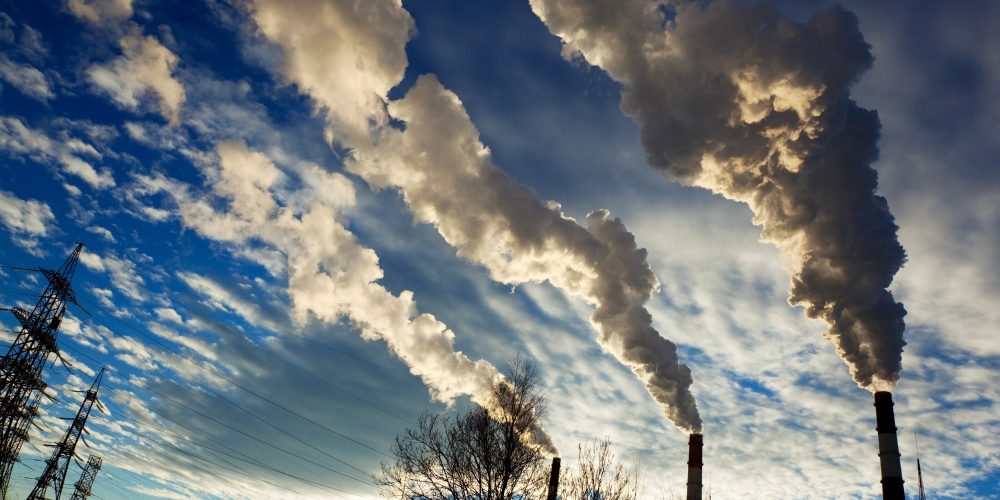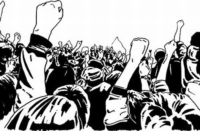The Anthropocene is the term used to describe the geological period in which human activity has been the main determining factor in the Earth System. This influence has been overwhelmingly negative and has led the Earth into its sixth great extinction event.
While capitalism will portray this as the fault of human beings in general, the fact is that it is capitalism—specifically capitalism at its latest stage, imperialism—that deserves the blame. Whether it be the decision of the British ruling class in 1912 to switch from coal to oil in its battleships (partly as a response to the militancy of coalminers) or the increase in the consumption of luxury goods in the United States after its rise to global supremacy, state-monopoly capitalism has ensured that any increase in GDP has led to a decline in environmental standards, to say the least.
Since 1950 catastrophic damage has been done to the environment, and it is no coincidence that this period is also seen as the golden age of capitalism.
Despite the United States being the model of free-market “success,” in reality its economy has still not recovered from its 1929 crash, and has only survived because of a military Keynesianism, which has merely kicked the can further down the road. The Marxist historian Art Preis wrote that “at no time since 1929 has American capitalism maintained even a semblance of economic stability and growth without huge military spending and debt.” This spending was only intensified as a result of the Cold War and the threat posed by the socialist world.
The US military is now the world’s largest polluter. It is the number 1 user of petroleum and the largest producer of greenhouse gases, and produces more hazardous waste than the five biggest American chemical companies combined. Nuclear testing and the use of depleted uranium, Agent Orange etc., while causing uncountable damage to human beings, also made a massive impact on the planet that humans live and work on. Indeed it has been estimated that a fifth of all environmental degradation was caused by military activities alone.
The consequences of climate change, while overwhelmingly caused by a small number of countries, are imposed mostly on the poor and oppressed; 99 per cent of the victims of global weather disasters are in developing countries, with 75 per cent of these being women. The rich can afford to buy themselves out and insulate themselves from the disaster they have created. This will only lead to further conflict and migration from those countries to the regions where the wealth taken from their resources ends up.
The Irish state is not immune to this, given its geopolitical position. Moneypoint power station at Kilrush, Co. Clare, is one of the largest energy-producers in the country, run by the ESB. It is reliant on its coal from the Cerrejón open-pit mine in La Guajira, Colombia, where indigenous people and social leaders have been intimidated from pointing out the environmental and social consequences of the mine.
Climate change is a political problem and can only be solved by political solutions. We have been forced to fight it as individuals, from being told not to eat meat, to drive less, or some other individualist solution. Meanwhile the real culprits get away with it. This is merely the ruling class escaping their responsibility. The only solution lies in a change of political-economic system. As David Harvey has said, we are all neo-liberals now.
While eco-socialists and others have made well-meaning attempts to draw attention to climate change as a consequence of capitalism in the abstract, we need to go further. It is uneven development that allows this to happen unimpeded. It is a consequence of a system working as designed. We can only challenge environmental catastrophe at the national level.
China has tackled pollution by increasing the number of energy companies in state ownership. Last year the president, Xi Jinping, called for an “ecological civilisation” in his address to the national congress of the Chinese Communist Party. Socialist Cuba has pioneered advances in environmentally sustainable agriculture, with a tenth of Cuba’s landmass environmentally protected as part of a 100-year plan to protect the country from climate change.
These are just some examples of what a sovereign, independent and environmentally minded state can accomplish. If we fail, one consequence will be that trade unions will increasingly find that workers are not able to work because of increasing heat, a common complaint but one that is a dangerous health and safety issue; yet economic pressures mean that not all workers have the ability to refuse work.
As the left, in Ireland and abroad, continues to go from one defensive struggle to the next, for the sake of our planet and ourselves we need to take the initiative. This is a feminist issue, a trade union issue, and a peace issue, and it needs to be at the front of our thinking, not merely a box-ticking exercise. We can either save the planet or save imperialism.
“For it is because we are kept in the dark about the nature of human society—as opposed to nature in general—that we are now faced (so the scientists concerned assure me) by the complete destructibility of this planet that has barely been made fit to live in.”—Bertolt Brecht.






